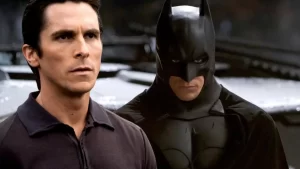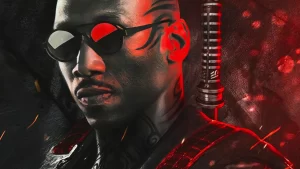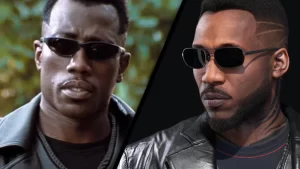Da Vinci = Van Helsing
A Show Review of Da Vinci’s Demons Episode 6: The Devil
By: Lawrence Napoli
For the first time in this show’s brief history, an episode follows immediately where the previous episode left off which is exactly what the audience needed seeing how last week’s episode: “The Tower,” ended with the unexpected return of Dr. Bashir . . . er, The Turk played by our good friend Alexander Siddig. Unfortunately, what “The Devil” reveals in furthering Da Vinci’s quest for discovery, meaning and purpose really starts to get muddled in what seems to be an incredibly random side quest as is suggested by The Turk himself.
Warning: There’s a lot of male nudity in this episode.
Attention readers: This is where my Van Helsing reference comes into play and how it corresponds to the individual for which this episode (“The Devil”) was named, and that’s all you’re going to get from me. Even if we are talking about the same time period in history as it pertains to Da Vinci and “Person X,” there are a number of reasons why this chance encounter vexes me greatly. First, I can understand the novelty of writing something like this into the story, but this kind of plot twist feels an awful lot like jumping the shark which makes no sense for a show that very recently got picked up for a second season as of last month. Second, introducing “Person X” as a relevant character to this story completely undermines every form of opposition Da Vinci has encountered so far. Third, it just seems too farfetched for how this drama was established; that being, an attempt to explore the fantastic conspiracy and prophecy of Da Vinci’s work and influence within the context of his country’s political stability.
[[wysiwyg_imageupload:7875:]]
Simon Belmont could handle him. Can Da Vinci?
It all boils down to what this Book of Leaves journey really means for both Da Vinci and creator David S. Goyer. Who’s to say how it will end and what Da Vinci will ultimately learn from it, but let’s not forget that merely introducing this mystery to the character (as a means of resolving some deeply felt mommy issues) motivated Da Vinci to get his work out of the studio and into society. That connection is what makes this interpretation of Da Vinci interesting and easy to empathize with. The further Da Vinci drifts towards the Book of Leaves, the further he drifts from every other character this show has so painstakingly connected to the fate of the main character and this sensation is simply impossible to deny once the credits roll for this episode.
[[wysiwyg_imageupload:7876:]]
If you see me, that means the Book of Leaves, which means everything else disappears!
Since Da Vinci’s relevance to the overall plot seems to take a hiatus, more supporting characters and subplots come to the forefront. The three brewing subplots that are touched upon are Lorenzo’s political leadership, Giulino’s continued ascension to a contributing member of the ruling family and Rome’s nefarious leadership imploding on itself. By themselves, these plots are all very interesting so long as they connect back to the main character. This is why Da Vinci’s diminished capacity resolved so well during last week’s episode. Unfortunately, none of these situations make a connection to Leonardo’s field trip, they feel rushed because they all happen during this episode and they accentuate Da Vinci’s absence which benefits no one.
[[wysiwyg_imageupload:7877:]]
We may be getting lost.
Thanks to “The Devil,” I am concerned that interesting characters like the spy and Count Riario continue to fade to obscurity thanks to the introduction of even more new characters that seem equally important to the events surrounding Europe’s landscape as well as Da Vinci’s quest. I do not take kindly to being introduced to characters who are set up to fulfill certain roles, only to be ushered away from them to satisfy a particular aspect of Da Vinci’s quest which still doesn’t actually get him a step closer to his goal. It seems like an unreasonable sacrifice for the viewer to make when the strength of this show has been about making interesting connections between characters and situations. Viewers should not have to wait for another episode to at least get a hint of some connection.
[[wysiwyg_imageupload:7878:]]
Do you remember when I was a promising villain?
I didn’t care for much of this episode other than two quotes which I feel are central to Da Vinci as well as being significant social commentary 1) “Hell exists if the evil of this world exceeds our belief to conquer it.” And 2) “All things are possible. Even defeat.” The first suggests the kind of empowerment felt initially by Da Vinci to do something with his gifts and the second suggests Da Vinci ought to address his greatest weakness: lacking any sense of humility. Perhaps these ideas will take form in next week’s episode: “The Hierophant.” Or perhaps Da Vinci will have a run-in with Medusa.







